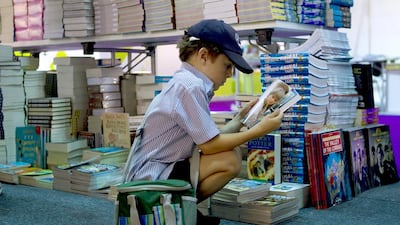A recent study of Emirati parents' attitudes towards literature highlighted a lack of appreciation of novels. As The National reported yesterday, the study found that parents have a clear preference for their children to read non-fiction works about plants, animals, and Earth and space sciences. Works of fiction weren't viewed as useful to their child's literacy development. This was despite the fact that most of the parents – 93 per cent – said fictional tales were their favourite stories.
This indicates a lack of awareness about the proven value of reading fiction. Fiction plays a major role in expanding imagination and opening up doors to other worlds. When children pick up a novel or short story, they have the opportunity to experience lives other than their own through the characters in the book. This, in turn, contributes to developing empathy by improving a reader’s capacity to understand what others are thinking and feeling. When reading literature, a child can gain a deeper insight into the psychology of characters and relationships. This psychological awareness challenges their expectations, undermining prejudices and stereotypes in the real world.
For this reason, reading fiction could have a remarkable impact on our children’s social behaviour as they grow up. Children who read literature are more likely to become tolerant adults since they have a more refined sense of patience which opens the door to greater understanding of human diversity. In order to understand others, one cannot rush to judgment. This is a skill that is uniquely taught by investing time in reading fiction.
By unlocking the imagination, fiction can help young readers to develop innovative ways of thinking that this country seeks to harness. While reading non-fiction is a critical component of fact-based learning, it is only one part of what it takes to create a well-rounded individual. Especially in this Year of Reading, a balanced literary diet should include all genres.

